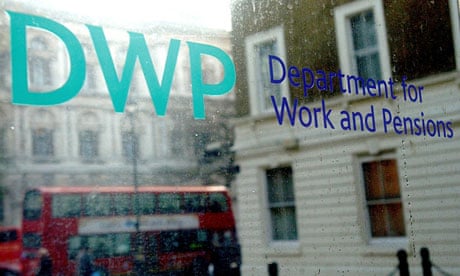Ministers are facing accusations of chaos over welfare reform after announcing that the introduction of the government's flagship benefits cap of £500 a week will be delayed across most of the country for up to six months.
The hold-up – believed to be the result of concerns over computer software – took councils, job centres and MPs by surprise and raised questions about the timetable for wider changes being planned to the entire benefits system.
Local authorities were told in May by welfare reform minister Lord Freud that the £26,000-a-year cap would come into effect in April 2013 and that, from that date, "the state will no longer pay households more than the average wage in benefits."
However, the Department for Work and Pensions (DWP) slipped out an announcement on Thursday saying that, on that date, the cap would only be applied in four London boroughs: Bromley, Croydon, Enfield and Haringey. The department said it would subsequently be rolled out nationally by the end of September.
"The phased roll-out will ensure a smooth transition for claimants. This is the sensible thing to do," the DWP said. "We are a responsible government delivering a big change – it's only right that we do this in a controlled and safe way."
While the department said it had always intended to introduce the cap "from" April 2013, MPs and senior figures in local government said the delay had come as a complete surprise.
Council chiefs argue that while the hold-up will allow them more time to prepare people for the change, there is a risk that some of those who stand to lose income will become confused about the timetable.
The Observer revealed last year that there were internal government concerns over the benefits cap. A leaked letter written by the office of the communities secretary, Eric Pickles, warned that it risked making 40,000 families homeless and costing more than it saved because the homeless would have to be found emergency accommodation.
There have been signs that the government is experiencing difficulties with the computer software being used to implement its wider welfare reforms, including the planned switch to universal credit, which will replace several benefits with a single payment over four years starting next year.
The DWP confirmed last month that a senior official, Malcolm Whitehouse, was leaving his post as the programme director for universal credit and that Steve Dover, in charge of the department's major IT programmes, was also being replaced as "corporate director".
The former minister for children, Lib Dem MP Sarah Teather, who opposes the cap, said: "A few extra months in their own homes is of course welcome news for my constituents, though it would be more welcome still if it indicated a full-scale rethink.
"This does appear to be chaotic. No one can give any information about the timetable now for implementing the cap. Families will face sudden very substantial reductions in benefits when the cap comes into force. … How on earth is a family, already close to the breadline, supposed to budget when no one can tell them when this is going to happen?"
Liam Byrne, the shadow work and pensions secretary, said: "Universal credit, the work programme and now the benefit cap are in an advanced state of chaos. This government is too fond of playing politics with social security and too feckless to deliver the change we need."The cap will apply to the combined income from the main out-of-work benefits plus housing benefit, child benefit and tax credits.
Ann Begg, chair of the work and pensions select committee, said the revelation last week that carers looking after disabled adult offspring in their homes will be affected by the cap is one of the unintended consequences that the government is only now waking up to.
Karen Buck, the Labour MP for Westminster North, who has highlighted the case of a constituent who is set to lose £80 a week, despite the need to look after her 20-year-old son who has a mental age of eight, said: "The closer we get to implementation day, the more the government and local authorities come to realise how great will be the consequences of getting this wrong.

Comments (…)
Sign in or create your Guardian account to join the discussion